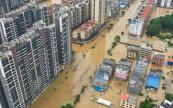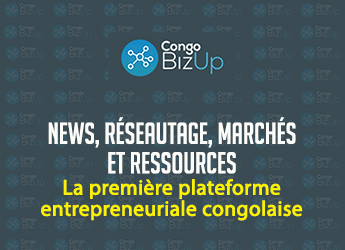Consultant for Research on the coordination between the 3Gs on country level in DRC
![]()
CONSULTANCY ANNOUNCEMENT N° 027/July/2021
Position: Consultant for Research on the coordination between the 3Gs on country level in DRC
Sector: Healthcare
Project: 3Gs
Location: Kinshasa
Supervisor: Country Director
Duration of the Contract: 30 days
Start date of service: September 1st
End date of receipt of applications: 05 August 2021
Requested: A proposal including budget
I. Introduction
The ‘3Gs’ are the three largest global health initiatives that raise and allocate funds to strengthen health systems in low- and middle-income countries. These are the Global Fund to Fight AIDS, Tuberculosis and Malaria (Global Fund), the Global Alliance for Vaccines and Immunizations (Gavi) and the Global Financing Facility (GFF).
The COVID-19 pandemic has once more brought the need for strengthening health systems and close international cooperation to the forefront. Effective coordination between the 3Gs and alignment with country plans increases their impact on global health. They have made promising commitments to do so, including in the Global Action Plan for Healthy Lives and Well-being for All (GAP). The time is now to seize the opportunities to move forward.
In 2021, Cordaid and Wemos (an international NGO based in the Netherlands) conducted a study and drafted a policy brief in which we identified some areas of attention and recommended ways for the 3Gs to reinforce their approach to strengthening health systems in a coordinated manner. These recommendations aim to support their efforts to contribute to country-led, sufficiently funded and staffed, gender-transformative and equitable health systems, together with the communities involved.
The study is split in two parts; a desk research (Part 1) and country case studies (Part 2). The desk research was finalized in March 2021. It was followed by a webinar, featuring speakers from GFF, the Global Action Plan (GAP) and implementing countries.
These terms of reference are for the second part of the study, the country case studies which will be carried out in Q3 2021. Already there has been a great deal of debate in global fora and the 3Gs are developing new global strategies and making global commitments. However, developing and discussing global level strategies does not reflect the actual alignment happening at country level with regard to setting the health priorities, funding, implementation and coordination. The country case studies will assess the added value of the new strategies and renewed commitments for coordination and alignment at country level. The studies will assess whether these global commitments have or have not been translated to country level. This assessment will be put into context and take into account factors such as shrinking civic space, different cultural environments, as well as specific operation environments and contexts.
II. Subject
The country case studies will investigate the practice of 3Gs coordination on country level, by exploring the topic with the Ministry of Health, in-country technical and financial partners plus civil society representatives.
III. Objective
The results of the case studies will lead to actionable policy recommendations, linking the recommendations on global level to the practical outcomes at country level when relevant.
The country analyses will enable us to make sharpened, concrete, evidence-based recommendations to the 3Gs and other donors, within and beyond the six areas of attention that we identified (health finance, Human Resources for Health, supply chain management, health data and information systems, community engagement & gender).
IV. Cooperation with Wemos
Following the joint Cordaid – Wemos study, a number of independent in-country analyses will be conducted. Because of our presence in different parts of Africa, different partners and networks, Wemos and Cordaid will each decide their country cases based on previous activities, experience and capacity. The set-up of the research will be similar, which makes it possible to compare, and allow us to draw joint conclusions.
V. Case study Cordaid: Democratic Republic of Congo (DRC)
In DRC, Cordaid is working on making health care more accessible and improving the quality of care. Since 2012, Cordaid is principal recipient of the Global Fund for HIV and since 2018 for HIV and TB working in 24 out of 26 provinces of the country. Cordaid has a country office in Kinshasa and field offices in Goma, Kananga, Gemena, Bunia, Bukavu and Uvira.
The GFF, Global Fund and Gavi are all three present in DRC, and all have their interpretation of and contribution to health system strengthening. This case study aims to see how the collaboration is working out in practice and whether there is room for improvement. The results of the case study will be used as input in the on-going reflection and debate on 3G coordination.
VI. Expected outcomes
Actionable recommendations on improving the coordination between the 3Gs on country level, focusing on the following blocks:
- Health financing
- Health data and information systems
- Supply Chain management
- Gender.
VII. Research questions
Overall
What concrete recommendations can be identified to enhance the effectiveness, efficiency, relevance and sustainability of 3G coordination in DRC?
Specifically
Health financing
- What strategies were put in place to enhance the collaboration between Gavi, GFF and the Global Fund on health financing, knowledge-sharing and innovation? What were the concrete results?
- What has been achieved by the 3Gs in relation to the improvement of transparency (of financial flows), equity and accountability?
- What has been achieved by the 3Gs jointly in relation to domestic resource mobilization and the (envisaged) increase in the DRC government health budget?
- To what extent have the 3Gs coordinated their efforts in order to ensure the best value for money, avoiding duplication of efforts and making sure that interventions are cost-effective.
- To what extent have the 3Gs been jointly active to advocate for global tax justice, fight illicit financial flows and appeal for debt cancelation?
Health data and information systems
- To what extent have the 3Gs coordinated their efforts in order to avoid duplication of data collection and the existence of parallel data systems?
- To what extent have the 3Gs been able to coordinate and align resources with country owned strategies (enabling DRC to have decision making power and take the lead in decisions on their data system)?
- To what extent are the health data and information systems used by the 3Gs transparent while at the same time protecting privacy?
- To what extent are disaggregated data being used by the 3Gs?
Supply Chain management
- To what extent have the joint efforts of the 3Gs resulted in securing the uninterrupted and equitable availability of products, and enhanced affordability and quality?
- To what extent have the 3Gs been able to jointly develop new strategies to reach ‘the last mile’?
- To what extent have the 3Gs joined their efforts in involving and strengthening the capacity of national private and public sector actors (government, pharmacies and medical stores) in their supply chain operations leading to an effective supply chain ?
Gender
- To what extent have the 3Gs been able to integrate a gender perspective in their policies and programming, and in their governance structures (e.g. Country Coordinating Mechanism, Civil Society Country Platform, GFF Civil Society Coordinating Group)?
- To what extent are the practices of the 3Gs gender transformative and fostering progressive changes in power relations between men and women – to what extent have policies been translated into practice in DRC?
- To what extent have the 3Gs been able to coordinate and align research to identify the impact of their programs and policies on gender equality?
VIII. Set up and implementation
The set-up of the case study research is as follows, depending on how the COVID-19 outbreak will develop and depending on the consultant selected:
- Desk research / preparation to develop a concrete research proposal
- Identification of interested CSOs for collaboration
- Exploratory interviews to finetune the scope of the research at country level: face to face interviews with government officials; representatives of the 3Gs in and outside DRC; key informants from Cordaid programs; technical partners; beneficiaries, representatives from CSOs, etc.
- Analysis / Conclusions / Recommendations
- Validation of the recommendations.
IX. Planning
The research needs to be realized in 30 days of work starting around September 1, 2021. The proposals need to specify:
- Understanding of the assignment / relevant expertise
- Research framework / set up and questions
- Methodology
- Planning
- Detailed budget.
X. Deliverables
The research will result in a concise report in either French or English of maximum 50 pages, excluding annexes.
XI. Desired competencies & skills
A DRC based consultant is preferred. The candidate should have a solid understanding of the 3Gs, health system strengthening and knowledge of the four areas of attention selected (see above). Moreover:
- A good understanding of the funding mechanisms of the 3Gs
- Sufficient experience in analyzing policies (desk research) and interviewing stakeholders from different sectors (public, private and CSO)
- Full English and French proficiency
- Proven experience in research, consultancy and report writing
- Good communication and reporting skills
- A pragmatic and efficient way of working
- Availability at short notice, liaising regularly with actors in different time zones.
XII. Procedure for submitting an application
We invite all interested parties to submit a proposal before August 10 2021. We prefer a concise proposal, which explains how the consultant interprets these Terms of Reference and how he or she intends to execute this assignment: what would be his/her way of working (methodology), what are the intended outputs and which (staff) resources are needed to conduct this assessment? In addition, the proposal should include a budget (see specification above).
Applications are sent exclusively to the Country Director electronically at job.cordaidrdc@cordaid.org with the title: 3Gs Consultant, with the vacancy notice number.
Please send add to your proposal a cover letter which explains your interest and briefly illustrates how you meet the criteria described above (based on your experience), as well as the names and contact details (e-mail, address, telephone number) of three reference persons and the up-to-date CV (with a size less than 3 Megabits).
The deadline for submitting applications is August 05, 2021 .
Applications received after this deadline will not be considered. Only selected candidates will be notified by email or phone.
For shortlisted candidates, the selection process includes an interview and checking of the reference’s persons provided.
N.B.
- FEMALE APPLICATIONS ARE STRONGLY ENCOURAGED AND WITH EQUAL CAPACITIES, THEY WILL BE PREFERRED.
- ONLY CANDIDATES RESPONDING TO THE RESEARCH PROFILE ARE ENCOURAGED TO APPLY;
- CORDAID DOES NOT ACCEPT ANY FORM OF CORRUPTION.
Kinshasa, 07/07/2021
For Cordaid DRC,
Sylvain DUHAU,
Country Director
CORDAID RDC
Kinshasa : n°65, Boulevard Tshatshi, Résidence FIKHUSS, Commune de la Gombe
(Réf. Secrétariat Général de l’Enseignement Supérieur et Universitaire/Projet PEQPESU)
B.P. 351 Kin I - Tél. +243 991001832 - Email : cordaid.rdc@cordaid.org
Bukavu : N°6, Avenue Mimosa, Quartier Ndendere, Commune d'Ibanda
Tél.: +243 972001620 - Email : cordaid.bukavu@cordaid.org
Goma : N°16, Avenue Karisimbi, Quartier Les Volcans, Commune de Goma,
Tél : +243 972001622





















